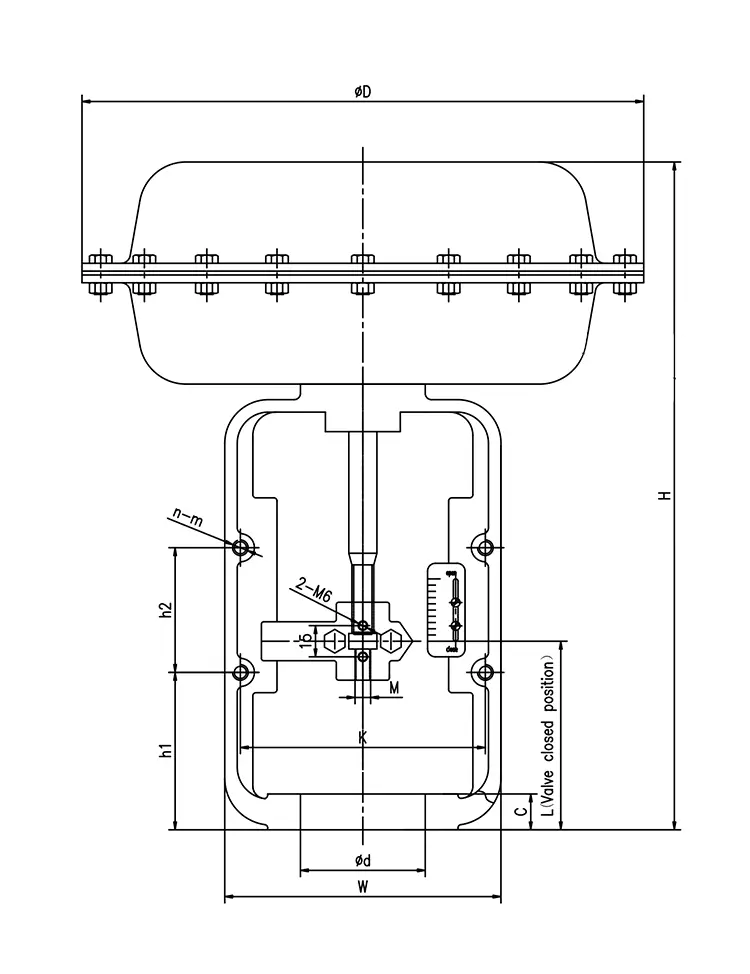Why Is a Control Valve Actuator So Essential in Modern Industrial Automation?
2025-11-07
In today's fast-evolving industrial landscape, precision, reliability, and automation are key factors for achieving operational excellence. One of the most critical components ensuring accurate process control is the Control Valve Actuator. As an engineer working with Zhejiang Lozose Intelligent Control Instrument Co., Ltd., I've seen firsthand how a well-designed actuator can dramatically improve system efficiency and stability. Whether it's managing flow, pressure, or temperature, the Control Valve Actuator plays an indispensable role in maintaining process balance and safety.
What Is a Control Valve Actuator and How Does It Work?
A Control Valve Actuator is a device that converts an electrical, pneumatic, or hydraulic signal into mechanical motion, allowing the valve to open or close precisely according to process requirements. Essentially, it's the "muscle" behind the valve's motion, ensuring that industrial systems react accurately to control signals.
There are three main types of actuators used in industrial applications:
-
Pneumatic Actuators – Powered by compressed air, ideal for fast response and reliability.
-
Electric Actuators – Driven by electric motors, providing high precision and control.
-
Hydraulic Actuators – Operate using fluid pressure, suitable for heavy-duty applications.
Below is a brief comparison of the main actuator types:
| Type of Actuator | Power Source | Key Advantages | Common Applications |
|---|---|---|---|
| Pneumatic | Compressed Air | Fast Response, Safe in Explosive Areas | Chemical Plants, Food Processing |
| Electric | Electricity | High Accuracy, Easy Automation Integration | HVAC, Water Treatment |
| Hydraulic | Hydraulic Fluid | Strong Force, Handles Large Valves | Oil & Gas, Marine Industries |
Why Do I Choose a Control Valve Actuator from Zhejiang Lozose Intelligent Control Instrument Co., Ltd.?
When I first worked on a refinery automation project, I asked myself: Why should I use a Control Valve Actuator from Zhejiang Lozose Intelligent Control Instrument Co., Ltd.? The answer became clear during the testing phase. Lozose's actuators provided exceptional accuracy, minimal maintenance, and seamless integration with various control systems.
Key Product Features:
-
High Precision Control: Ensures smooth and accurate valve movement for stable process control.
-
Corrosion-Resistant Materials: Durable design for harsh industrial environments.
-
Compact and Lightweight: Easy installation with optimized torque output.
-
Smart Feedback System: Real-time position and performance monitoring.
Technical Parameters (Example for Electric Type):
| Parameter | Specification |
|---|---|
| Power Supply | AC 220V / DC 24V |
| Torque Range | 10 Nm – 5000 Nm |
| Control Signal | 4–20mA / 0–10V |
| Protection Grade | IP67 |
| Operating Temperature | -20°C to +70°C |
How Does a Control Valve Actuator Improve Industrial Performance?
In one of my previous automation projects, I found that after upgrading to Lozose actuators, production downtime dropped by nearly 30%. Why? Because the actuators delivered precise, consistent responses to control signals, reducing manual intervention and minimizing human error.
Benefits of Using a High-Quality Control Valve Actuator:
-
Enhances process accuracy and safety.
-
Reduces energy consumption and maintenance costs.
-
Improves overall system responsiveness.
-
Extends the service life of the control valve.
In industries like petrochemical, power generation, and water treatment, these improvements translate directly into cost savings and increased productivity.
What Makes the Control Valve Actuator So Important Today?
Modern industries demand automation that is smart, efficient, and sustainable. The Control Valve Actuator sits at the heart of this transformation, enabling systems to automatically adjust operations in real time. Without it, even the most advanced control systems would be ineffective — like a brain without muscles.
At Zhejiang Lozose Intelligent Control Instrument Co., Ltd., we understand that every actuator we produce must meet global standards of precision, durability, and intelligence. That's why our R&D team continuously innovates to provide cutting-edge actuators that perform reliably across industries worldwide.
Q&A Section: Real-World Questions About Control Valve Actuators
Q1: How do I know which Control Valve Actuator type suits my system?
A1: It depends on your application. For quick and safe control in explosive areas, pneumatic types are ideal. For high precision and easy integration with automation systems, electric types are recommended. Hydraulic actuators are best for heavy-load environments.
Q2: What maintenance does a Control Valve Actuator require?
A2: Lozose actuators are designed for minimal maintenance. Regular inspection of seals, air pressure (for pneumatic types), and electrical connections ensures long-term reliability and efficiency.
Q3: Can the Control Valve Actuator be customized for specific industrial needs?
A3: Absolutely. Zhejiang Lozose Intelligent Control Instrument Co., Ltd. offers fully customizable actuator solutions, from torque range and material selection to control signal compatibility, ensuring a perfect fit for your application.
Why Choose Zhejiang Lozose Intelligent Control Instrument Co., Ltd.?
As someone who has worked directly with various actuator brands, I can confidently say that Zhejiang Lozose Intelligent Control Instrument Co., Ltd. delivers exceptional reliability, intelligent control solutions, and superior engineering quality. Their Control Valve Actuator ensures that your industrial operations run smoothly, safely, and efficiently — every single day.
If you're looking to enhance your automation systems with a trusted actuator partner, contact us today for professional consultation and customized solutions tailored to your industrial needs.



